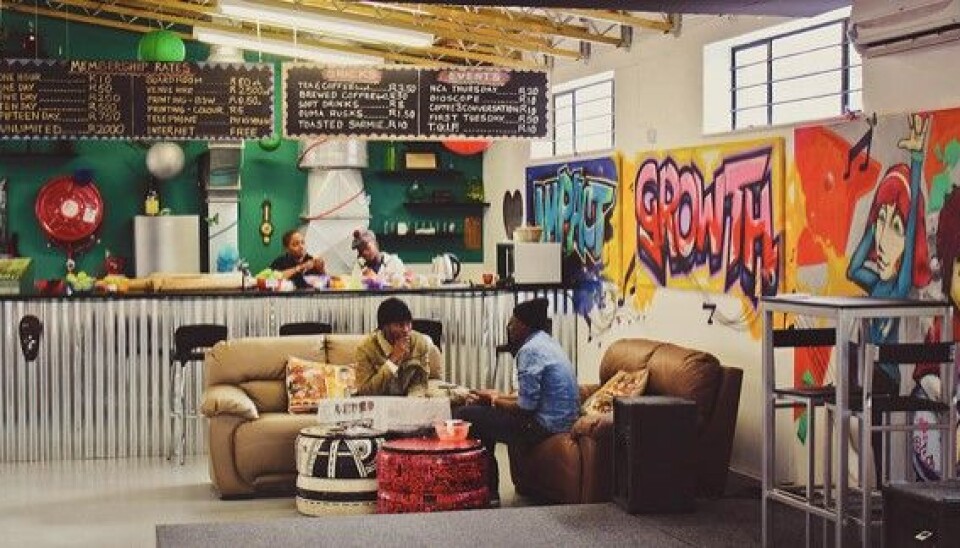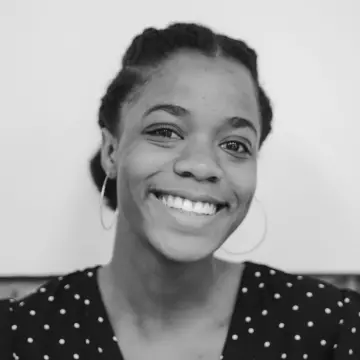-

Senior AI & ML Engineer | NBIM
-

Leder data og KI | SpareBank 1 Forvaltning
-

Arkitekt | SpareBank 1 Forvaltning
-

Head of Community Arena – Collektivet i Construction City | OBOS
-

Senior forretningsutvikler / produktleder - konsulent (2 stillinger), med partner- og medeierskap | Kadabra
-

Senior Security Engineer | Firi
-

Senior Software Engineers - Frontend & Backend | Hornet
-

Medeier* | Boitano
-

Fullstack-utvikler | Norad
-

Lead Data Engineer | Norad

Problems in Africa are diverse and complex. So why are Norwegian Entrepreneurs entering the region seemingly ill prepared yet confidently?
By Candice Baloyi, South African living in Oslo, student at Norwegian Business School BI and writer at Shifter
Oversimplification of Africa’s problems, beyond naive, is patronizing. It makes the statement simultaneously that, not only can Africans not solve their own problems, they do not understand them.
Eating lunch around the table, having returned home for Christmas after being gone for about five months, was not the time I expected to be attacked. Dismembered. Least of all by my own sister. “You have to accept that most of your opinions on South Africa will be outdated or superficial by the time you come back,” she said to me. I’ve been gone for no more than three years. And in this time, I have been restricted from giving too many opinions on the current status of South Africa; whether it be political, economic or cultural observations. Whilst feeling irritated at the audacity of my sister, I had been feeling as much over the recent years and had already to some degree come to the conclusion myself.
What this suggests is that the problems in Africa are complex, requiring constant in-depth engagement to be able to approach them. Requiring more than my twenty years of living experience, access to first-hand information and continued reading of the news, albeit from a distance. In recent years however, Norwegian entrepreneurs are entering the region with the confidence of a 50-year-old African academic. Why are young entrepreneurs with definitely less grasp of the socioeconomic standing of Africa than I have, so quick to tackle her problems, when I hesitate? I think there are two main reasons for this, the first being a complete oversimplification of the problems and the second is the moral quality startup society so requires of its members.
The reason of “oversimplification” is the one that most irks me as an African national. This suggests that Africans are simple, with simple problems, and just cannot figure out how to solve their simple problems. It is in line with historical thinking of us, “The native is to be treated as a child,” Cecil John Rhodes, colonial pioneer in South Africa was recorded saying. Whilst there may be goodwill behind starting a venture in Africa, pursuing it with minimal knowledge is directly insulting to Africans. We have intellectuals, we have academics, we have governments, and the persistence of our problems is not for lack of trying, capability or intellectualism. Is it the result of corruption, historical hindrance and nuanced problems which, I, as a layman will not lightly venture into.
The second problem is easier to stomach but not withstanding its own consequences. The tech/innovation world has tied itself to morality using it as the stone thrown on the other side of the plank to launch itself into prosperity. In recent weeks, we’ve seen the interesting conversations that can be had around this topic through the controversial move Facebook has made in their news feed algorithm. Whilst innovation genuinely contributes greatly to society, not all tech ventures have an obvious, or even any, goodwill mission. In my opinion this is ok, some developments must take place simply for the sake of development. Unfortunately, the tech community is not as forgiving as me and this causes a scramble for missions or impact projects, and Africa is the land that keeps on giving (ironically). The pushing of international ventures in Africa, however, often relies on the downplaying of the existing and local startup industry and the indulgence of degrading or pejorative imagery.
A number of examples of ventures exhibiting these qualities exist now in Norway. Kahoot, famous educational quiz app has pledged to transform learning in the world and has toured South Africa extensively. However, a tech solution can have very little impact on the broader demographic of South African learners unless our problems of expensive internet access and a huge poverty gap can be solved. Kahoot will reach a similar demographic as the one it reaches in Norway, with their products as they are now, in South Africa. However, it will not greatly affect the learning experience of the average South African learner. This is a point my intuition and observation has lead me to make. I do not doubt the sincerity of their operations in South Africa, also the future progress of their research operations in South Africa is unknown. With a competent team such as Kahoot’s it may just be fruitful if they apply the right type of thinking and speak to the right demographic.
An interesting project started by Norwegians in Africa is the Pangea Accelerator Program. Co-founded by Jonas Tesfu, Dede Koesah, Chisom Udeza, and Gilbert Kofi Adarkwah Udeza, the accelerator program plans to establish accelerators in and around Africa as well as to “educate” international and diaspora investors; responding to the idea that investors are afraid or weary of investing in Africa. The idea that investors are afraid of investing in Africa, however, should not be so easily accepted. This generally accepted fear or weariness that investors have, is racism. It is to associate unreliability and corruption – usually the reasons presented for “fear” – with the average African. Being afraid of investing in specific African governments because of historic or current failures or doing physical business in certain regions because of the current situation is excusable, indeed warranted. However, being afraid of investing in entrepreneurs, a representation of the general public; who do not bear the financial track records of their governments, is to assume certain qualities of all Africans. It is to see corruption as an African thing. It is to see unreliability and unintelligence as distinctly African qualities, warranting “fear”. Whilst I did not find anything problematic with Pangea Accelerator, indeed they impressed with their respect of established African ecosystems, and seeking of local advice; their task to “educate” and “enlighten” Norwegian investors points out international investor’s discriminatory behavior.
Another widely held view is that Africa, has always and is still vastly behind the international startup industry. This simply is not true. A simple demonstration of this is the founding of M-pesa in Kenya. M-pesa was a product designed by the Kenyan sector of Vodafone, which allowed users to transfer money to one another through their mobile phones. This development happened in 2007, whereas Vipps, a highly revered banking innovation in Norway was created in 2015. That is a spread of eight years. Intelligence is not a quality restricted to region, whilst seeming obvious, it apparently it is not too obvious when thinking of Africa. Somehow our thoughts are immediately underdeveloped or backwards. The African startup scene, withstanding a lack of wealth and status like other startup scenes, has no lack of innovation or intellectual thought. Intelligence is not a commodity of the “developed” world. This is the stuff innovation is made of, and it is for this quality that African startups may very well compete with startups of the world.
I do not mean to be spiteful in my critique of international efforts in Africa. It is a minefield of mis-judgements and potential for insult and error, but this is the point I am trying to hammer through: it is a minefield and should not be approached as light work. Additionally, the idea that Africans should just be grateful for any help they receive is not one I will accept. I will continue to be critical because only through this will the right path be found, eventually. So, venture, continue, and myself and many others will act as usher barricades to the right direction.



